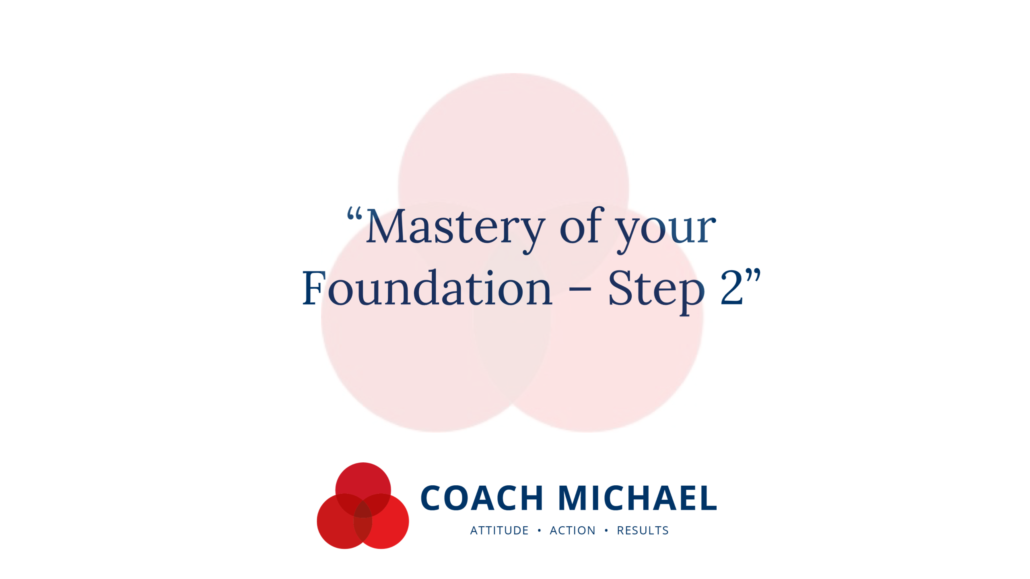Last week in talking just business we had to make a pivot. Today, we’re covering money mastery. In building the foundation of the business, money mastery is essential. What’s crazy is I was shocked as a coach in realizing how many business owners truly didn’t know their numbers to the capacity of which they should. If you think about it, the bottom line is that we’re in business to make money. If you’re not fully following, acknowledging, testing and measuring your numbers, what the heck are you doing?
I had a client a couple of years back that was in business for 35 years. When I asked him, “How much revenues did you generate last year?” He shares, “Not sure, but my accountant knows.” He didn’t know his numbers to the full capacity.
What we did was created a budget of where he just took last year’s numbers, budgeted out a year, added an increase in sales, adjusted its variable costs, kept the fixed costs the same and every month when the numbers came in, he would post the actuals next to the budgeted. Within three months, he knew his numbers inside and out. It just so happened that year 36 and 37 were the best years in his business ever, only after fully understanding his numbers.
I’m going to share four points that you really need to attend to, grade yourself, and up it if you’re not shining in those areas. Number one is learn how to read financial statements. I will agree, many years back I also avoided them. You look at a big spreadsheet with lots of numbers, and you get intimidated. However, they’re simple to read. You need to understand and read your cashflow statement, your P&L, and your balance sheet. It’s not complicated. Once you understand how to read these statements, you’ll be able to mastermind with your team, your accountant, and your coach to make the proper financial and strategic decisions for your business.
Next after understanding your financial statements, number two is to create a budget just like my client. Budget out for the year ahead recording the revenues you would like to accomplish, your fixed costs, your variable costs, and gauge those numbers month in and month out. As you compare the actuals to the budgeted numbers on a monthly basis, you will know your numbers very well to the point where you’ll be very clear on what decisions to make.
Number three is to know your breakeven. It’s interesting when people say, “Coach, I’d like to create a commission structure for my sales guys.” I reply, “Great, what’s the breakeven for the division?” If you don’t know that answer, you can’t create a commission structure.
I worked with a client years back that wanted to hit a certain sales number by a certain date. I had the ability to call up any one of his people and ask where they’re at, and they would give me the revenue number to the penny. When your entire team knows the goal and they know exactly where they’re at, that is extremely powerful. It’s pretty obvious that they hit the number. In addition, it just so happened to be the best year in business revenues that first year of working together. Know your break-evens, know exactly how much you need to produce daily, weekly, monthly, quarterly, yearly if you want to accomplish certain take home profit number for yourself.
The last and number four is to create a personal balance statement for yourself. A balance statement is simple. It’s everything you own minus everything you owe, when completed, it’ll show exactly what your net worth is. When we put these numbers on paper, we start measuring these things, knowing and understanding that every month you make your mortgage payment, your assets go up, your liabilities go down. You’ll begin to plan properly. Please understand that your personal balance statement is your report card. If you don’t know what your balance statement looks like, you already got an F. If you want to take that F to a C, to a B, to an A, create your balance statement, record your assets and liabilities. It’ll record the numbers and show you exactly what your net worth is. With this new understanding, you’ll know how to make adjustments to build your wealth.
Let’s face it, when we’re talking just business, that’s what just business is all about anyways. To build an abundant balance statement as so we could do what we want, when we want, with who we want.
In conclusion, understand in talking just business, master your time, master your money and you’ll be halfway to mastering the foundation of your business.

